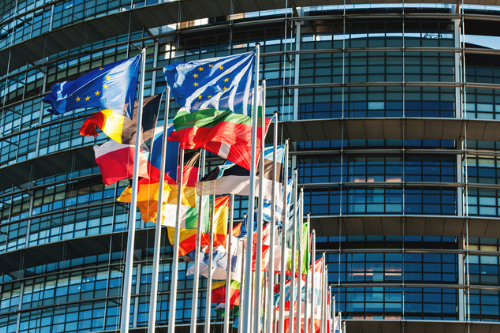

Lloyd’s has released a new report that identifies emerging geopolitical risks and provides businesses with advice on how to mitigate them.
The report, Shifting powers: meeting the challenges of the geopolitical landscape, was produced in partnership with the University of Cambridge’s Centre for Risk Studies. It discusses the transformation of the geopolitical risk landscape over the last 10 years and focuses on the 10 most pressing risks today, which include cyber attacks, social unrest and the mitigation crisis.
According to the report, geopolitical power centres have shifted since the Global Financial Crisis, driven by five macro-trends, including rising populism and the decline of the United States’ role as a conflict mediator.
Lloyd’s said it intends to use the research to support businesses with the resources and knowledge required to protect their organisations. The report proposed a series of steps for businesses to consider, including assessing supply-chain exposure and taking precautions to safeguard intellectual property and trade secrets against cyber attacks.
The report discusses the existing insurance products available to help businesses remain resilient during periods of crisis and uncertainty. It also identifies opportunities for the insurance industry to develop new products to address these risks. It highlights work already being undertaken by Lloyd’s Lab startups such as Moonshot and Verisk Maplecroft, companies that use artificial intelligence to better understand geopolitical threats. The report also highlights the role insurance can play in helping developing economies mitigate geopolitical risk.
“The geopolitical landscape is more complex, intricate and interconnected than ever before,” said Bruce Carnegie Brown, chairman of Lloyd’s. “Lloyd’s has a unique role as a hub of risk expertise and innovation, and we are delighted to have partnered with the University of Cambridge’s Centre for Risk Studies to identify ways we can help businesses manage these geopolitical challenges. Lloyd’s, and the wider insurance industry, can play a central role in addressing geopolitical risk, and in doing so create a safer, more sustainable world.”
“The changing nature of geopolitics poses a significant challenge to an industry traditionally associated with protecting physical assets,” said Andrew Coburn, chief scientist and the Centre for Risk Studies. “Insurers must innovate to safeguard the dependencies and complex operational practices which underpin global commerce from a host of geopolitical risks as they intersect with technology, public opinion, climate change, and other factors. We are delighted to contribute to this thought leadership promoting ambitious and necessary changes within the industry, which will help to safeguard us all.”
